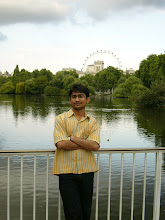Saturday, July 03, 2010
By Our correspondent
Islamabad
The number of children kept in the nationwide jails has declined from over 5,000 in year 2000 to around 1,300 these days, says National Manager of Society for the Protection of the Right of the Child (SPARC) Juvenile Justice Abdullah Khoso.
While attributing this decline in juvenile detention figures to the promulgation of the Juvenile Justice System Ordinance (JJSO) in 2000, Khoso wants the government and judiciary to take effective measures to create awareness of this law among quarters concerned, establish juveniles courts, strengthen probation departments, allocate funds for free legal aid of children, and introduce mechanisms for the JJSO’s implementation in Fata.
“It is an achievable task, which can bring relief to thousands of children and help them become good and productive citizens,” Khoso said on Friday.
He said he was hopeful the number of jailed juveniles would further decline in the days ahead. “I believe the time is not too far when children will not be kept in cells at least not for petty crimes,” he said.
The SPARC Juvenile Justice manager said in December 2009, the country had 1,357 juvenile prisoners but the number dropped to 1,300 by the end of June 2010, adding there is also a decline in the number of children ending up in criminal justice system in petty offences. He, however, said 9,000 to 10,000 children are currently facing criminal litigation and appearing in courts.
He said over the last decade, police had been found torturing juvenile offenders at police stations, judicial officers giving physical remand of juveniles to police, and juveniles being awarded rigorous imprisonment, detained along with adults in police lockups and jails, and tried by anti-terrorist courts. He said the 2009 Judicial Policy focused on quick disposal of cases but unfortunately, didn’t check violations of rights of juvenile offenders before trials, during trials and in prisons.
Khoso regretted the country had no exclusive juvenile court, which led to the children’s trial along with adults. He also complained special procedures of the juvenile courts were not being followed, children being awarded death penalty under different laws including Anti-Terrorist Law, juveniles coming in conflict with the law being denied mandatory free legal aid by the state, and children facing bailable offences not being released on bail by police.
He also pointed out that there was no proper and viable mechanism to determine the age of the juvenile offender and that could ruin his/her life.
http://www.thenews.com.pk/print1.asp?id=248544
Monday, July 5, 2010
Subscribe to:
Post Comments (Atom)

No comments:
Post a Comment